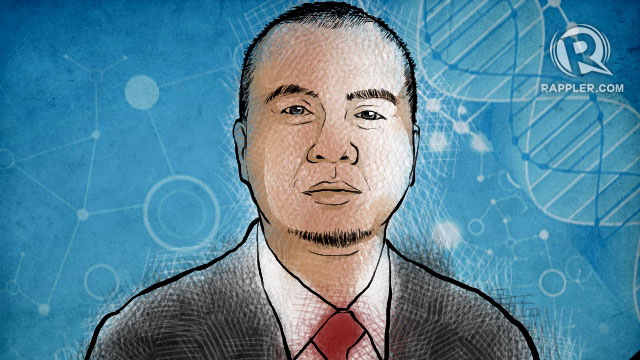
MANILA, Philippines – Whether it's tinkering with laser beams to "slow down" the speed of light, or studying mammals and researching on bat viruses for public health, Filipino scientists are relentlessly working to find ways to answer the world's most pressing questions and problems.
Their efforts have been recognized in the Philippines and have sparked the interest of the world. (READ: 5 things to make PH a better place for scientists)
In fact, Singapore-based magazine Asian Scientist included 8 of the Philippines' leading scientific researchers in its annual Asian Scientist 100, a list of the top 100 scientists from the region known for their contributions in their respective fields.
Senator Leila de Lima has filed a resolution to commend the 8 Filipinos.
"Recognizing them will also instill in them the best interests of the country in cultivating science and technology to aid in the improvement of the lives of millions of Filipinos," De Lima said.
Juliana Chan, Asian Scientist editor-in-chief, told Rappler in an email: "I am very happy to hear that Senator Leila de Lima has filed Senate Resolution No. 714 in honor of the 8 Filipino scientists on the 2018 edition of our Asian Scientist 100 list. These 8 scientists have brought great pride to the Philippines and they deserve recognition at the national level. I hope that the [resolution] receives popular support and that it gets ratified by the Senate."
Meet these 8 outstanding Filipino scientists, listed below in alphabetical order:
Lucille Abad
Senior science research specialist and chief of the Chemistry Research Section, Philippine Nuclear Research Institute (PNRI)

She developed a plant vitamin – an effective plant growth promoter using irradiated seaweeds. This research has also been recognized by the Japan-based Forum for Nuclear Cooperation in Asia.
Phillip Alviola
Curator at the Museum of Natural History, University of the Philippines (UP) Los Baños

Alviola helped develop methods to monitor biodiversity in protected areas. He's been studying mammals, the diversity of cave-dwelling bats, and bat viruses, which earned him the moniker "Bat Man."
Nathaniel Hermosa II
Associate professor at the National Institute of Physics, UP Diliman

Physicist Hermosa's breakthrough research "twisted" light and "slowed" it down.
Mario Antonio Jiz II
Senior science research specialist, Research Institute for Tropical Medicine (RITM)

Jiz significantly contributed to the study of schistosomiasis and the development of a vaccine against this disease. Schistosomiasis is a chronic disease caused by parasitic worms.
Lanndon Ocampo
Associate professor, Cebu Technological University

Ocampo developed guidelines for strategic sustainable practices in manufacturing companies. He significantly contributed to how industries could help address climate change.
Jeffrey Perez
Supervising science research specialist, Philippine Institute of Volcanology and Seismology (Phivolcs)

"Faultfinder" Perez contributed largely to the better understanding of fault lines and earthquakes in the Philippines.
Rogel Mari Sese
Program leader, National Space Development Program

Sese is an astrophysicist and an advocate of space research and development. He is spearheading what could be the Philippines' space research agency.
Aletta Concepcion Yñiguez
Assistant professor at the Marine Science Institute, UP Diliman

Yñiguez's studies contributed significantly to improving the Philippine sardine industry and managing red tide.
– Rappler.com
Illustrations by Ken Bautista / Rappler







